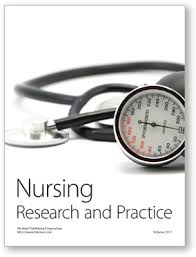Biofeedback Intervention for Stress, Anxiety, and Depression among Graduate Students in Public Health Nursing
Categories
Keywords
Categories
Keywords
- Show all
- ADHD
- Anxiety/Panic
- Burnout
- Cancer
- Cardiovascular disease
- Chronic pain
- Cognitive function
- Cortisol/DHEA
- Costs
- Dementia
- Depressie
- Diabetes
- Global Coherence
- Hypertension
- Intuition & Consiousness
- Kids/Youth
- Leadership
- Meditation/Mindfulness
- Metabolic Syndrome
- Obesity/Eating disorder
- Pregnancy
- PTSD
- Resilience
- Schizophrenia
- Science HRV & Coherence
- Sleep quality & fatigue
- Social Coherence
- Stress
Biofeedback Intervention for Stress, Anxiety, and Depression among Graduate Students in Public Health Nursing

Globally, graduate students have been found to have high prevalence of mental health problems. With increasing severity of mental health problems on university campuses and limited resources for mental health treatment, alternative interventions are needed.This study investigated the use of biofeedback training to help reduce symptoms of stress, anxiety, and depression. A sample of 60 graduate students in public health nursing was randomly assigned to either the biofeedback intervention or the control group. Results indicated that biofeedback intervention was effective in significantly reducing the levels of stress, anxiety, and depression over the 4-week period, while the control group had increases in symptoms of anxiety and depression over the same time frame. As future leaders in the public health nursing arena, the more psychologically healthy the graduate students in public health nursing are, the better the public health nursing professionals they will be as they go forth to serve the community after graduation.
Download the complete article, click here